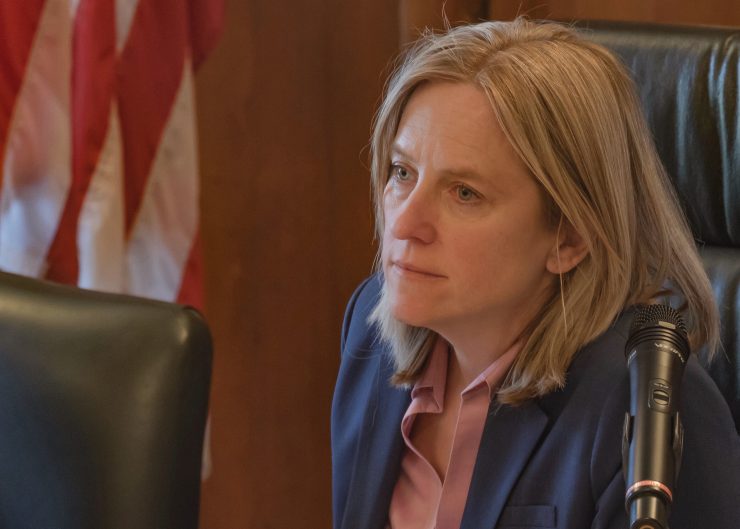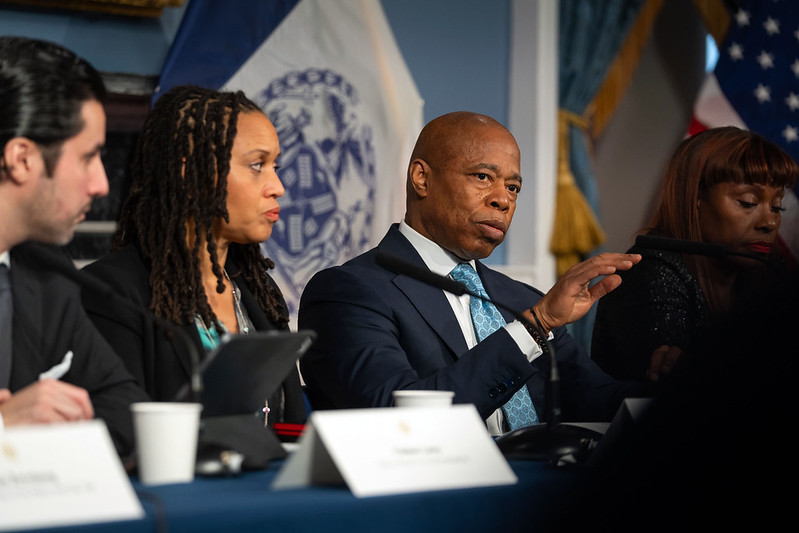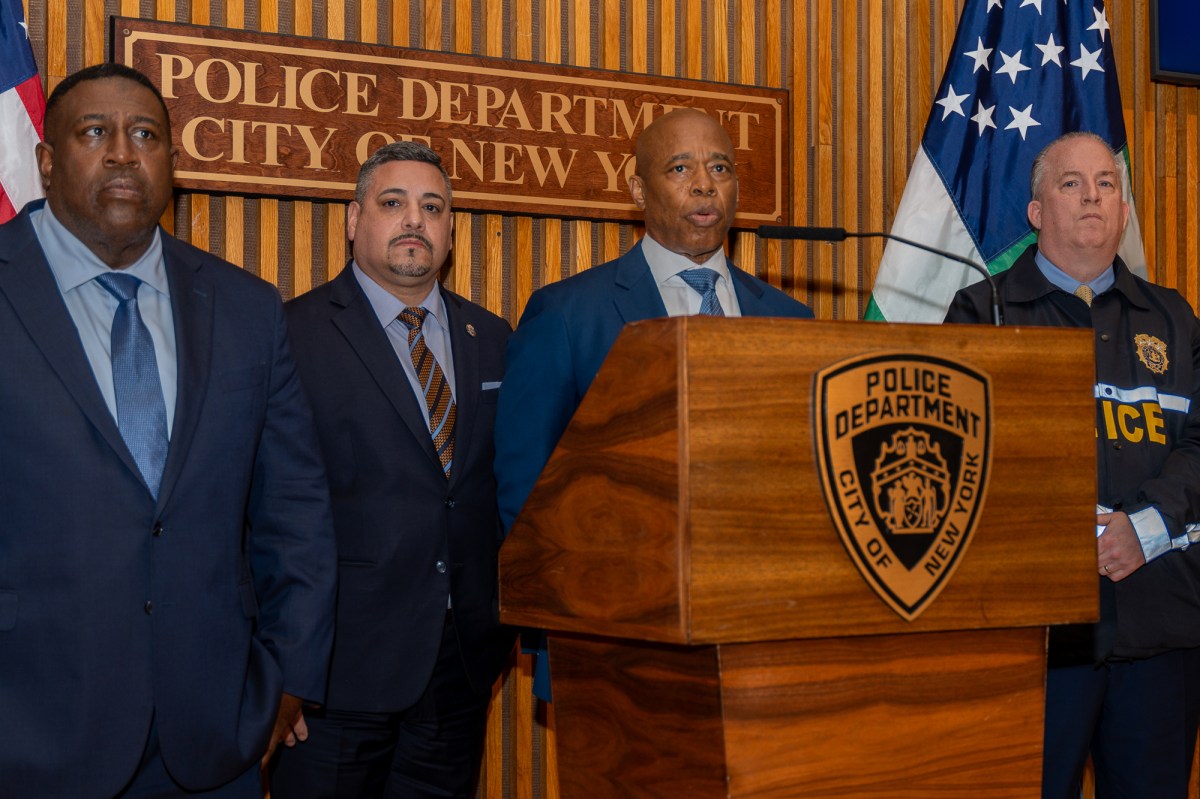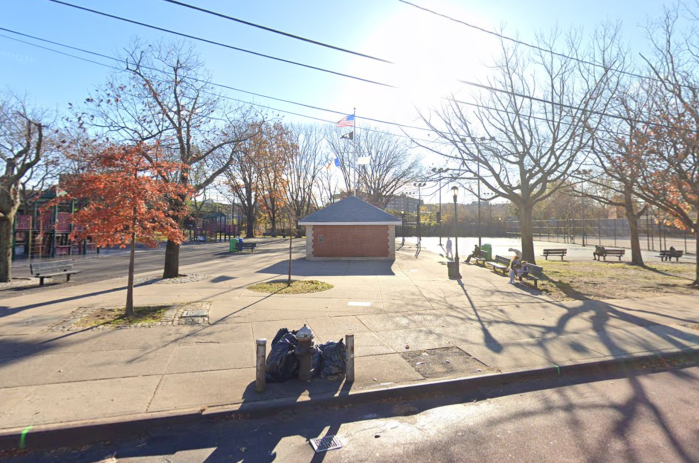Queens District Attorney Melinda Katz on Monday, Nov. 8, moved to vacate the convictions of 60 defendants, primarily for drug transactions or weapons charges, which were based on the police work of three former NYPD detectives who were later convicted of various crimes.
Queens Supreme Court Justice Michelle Johnson granted the motion and dismissed the charges.
The motion was filed jointly with defense attorneys who in May 2021 raised questions about the reliability of such convictions in a letter to all five New York City district attorneys.
“Earlier this year, my office was informed of a list of NYPD officers who were convicted of crimes which related to serious misconduct in regard to their law enforcement duties,” Katz said. “Upon receipt of this information, I made a commitment to review the Queens cases in which the officers were the essential witnesses and take appropriate action. The step we’ve taken today is the first in an ongoing and systematic review.”
Katz tasked her office’s Conviction Integrity Unit with the examination of the Queens cases where the prosecution of the defendant relied heavily if not exclusively on the work of a law enforcement officer who were later convicted of perjury or other serious crimes. At least 10 of the 20 officers identified in the defense attorney’s letter were involved in Queens criminal cases. To date, the CIU has done an initial review of cases involving three of the 10 officers and identified these 60 cases which required dismissal, according to Katz.
The following three former NYPD detectives were the essential witnesses in these initial 60 cases:
- Former NYPD Detective Kevin Desormeau was convicted in Queens on charges of perjury in the first degree, official misconduct, and making a punishable false written statement after lying about witnessing a drug sale that videotaped evidence showed did not take place. In Manhattan, Desormeau pleaded guilty to offering a false instrument and official misconduct after it was revealed that he fabricated the facts of a gun possession arrest. Desormeau was terminated by the NYPD as a result of these convictions. The CIU has identified 34 cases that should be dismissed based on Desormeau’s role as the essential witness.
- Former NYPD Detective Sasha Cordoba pleaded guilty in Manhattan to perjury in the first degree and official misconduct relating to her fabricating the facts of a gun possession arrest. Cordoba was terminated by the NYPD. The CIU has identified 20 cases that should be dismissed based on Cordoba’s role as the essential witness.
- Former NYPD Detective Oscar Sandino pleaded guilty to federal charges related to the sexual assault and other sexual misconduct involving arrestees while working as an NYPD detective. These charges arose out of three instances of sex crimes, one of which revealed that he sexually abused an arrestee in the bathroom of the 110th Precinct in Queens County. Sandino was terminated by the NYPD as a result of these convictions. The CIU has identified six cases that should be dismissed based on Sandino’s role as the essential witness.
“We cannot stand behind a criminal conviction where the essential law enforcement witness has been convicted of crimes which irreparably impair their credibility,” Katz said. “Vacating and dismissing these cases in both constitutionally required and necessary to ensure public confidence in our justice system.”
The Conviction Integrity Unit investigation was conducted by its director, Bryce Benjet.
“The vacatur and dismissal of these cases does not constitute a finding of actual innocence and is based instead on a finding of constitutional error and the fact that we cannot re-prosecute these cases where the essential law enforcement witness has forever lost professional credibility,” Benjet said. “That said, we will certainly investigate any claims of actual innocence made by any of these defendants.”
Elizabeth Felber, director of the Wrongful Conviction Unit at The Legal Aid Society, spoke on behalf of the defense attorneys.
“Criminal convictions largely based on the work of corrupt former or active NYPD officers who engaged in misconduct while executing their duties flies in the face of the oaths officers take to protect and serve New Yorkers,” Felber said. “This unconscionable and inexcusable behavior corrodes the public’s trust in law enforcement. It has also caused harm and hardship to real New Yorkers — several of whom were incarcerated based on the word of these corrupt officers.”
Felber added that one woman had passed away before her conviction could be dismissed.




































